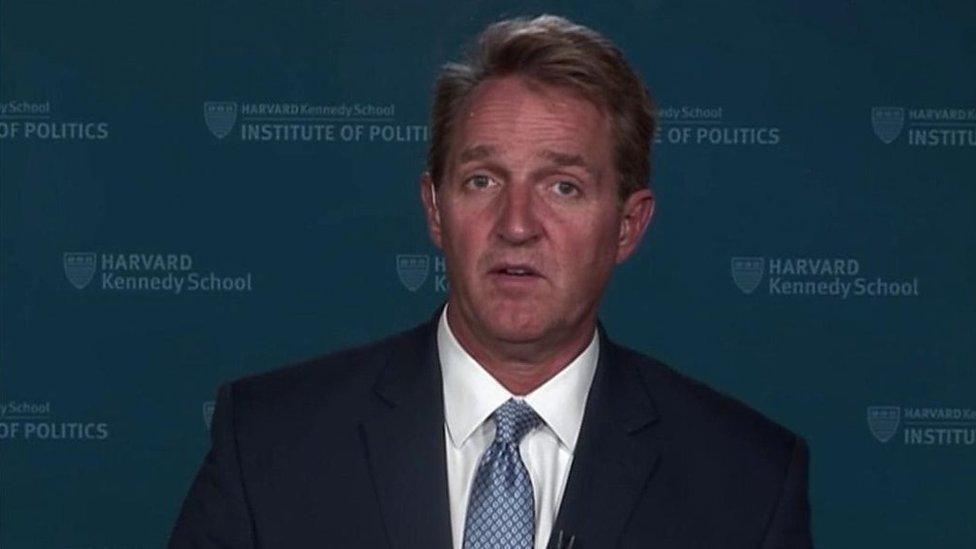Mark Sanford: Republican challenger to Trump gives up campaign
- Published
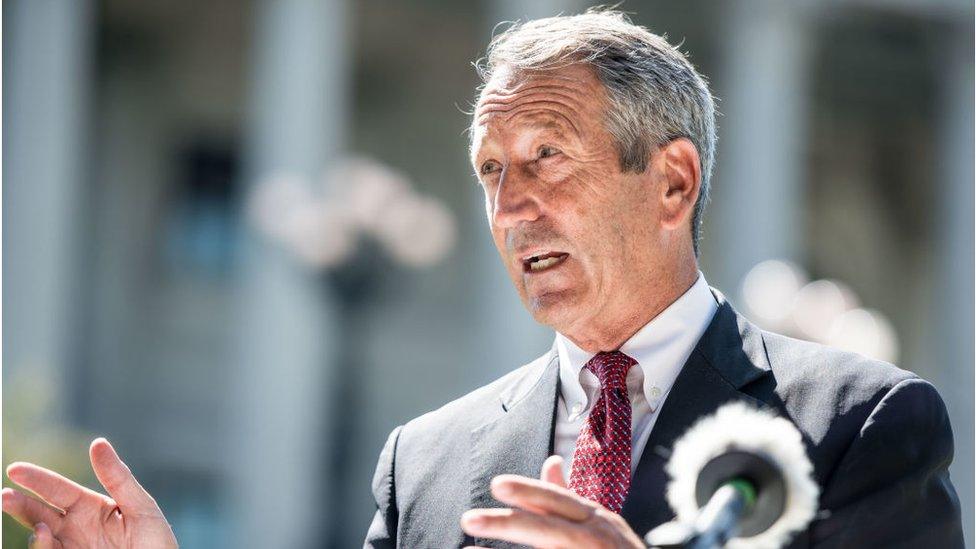
Mr Sanford failed to garner support for his bid to take the Republican presidential nomination from Mr Trump
Former South Carolina Governor Mark Sanford, one of three Republicans to challenge President Donald Trump, has ended his 2020 White House bid.
Mr Sanford blamed the impeachment inquiry into the president for making it "impossible" to talk about policies like decreasing government spending.
Impeachment is "pulling all the oxygen out of the room" in Republican circles, he told reporters on Tuesday.
No challenger is expected to snatch the party's mantle from Mr Trump.
Mr Trump remains popular with his party and no sitting president in the modern era has lost the race to be the nominee for their own party.
"All of the oxygen is leaving the room in terms of meaningful debate whether Republican or Democrat, but particularly on the Republican side on what comes next in our country on a whole host of issues," Mr Sanford said.
"In Republican circles, you cannot have a meaningful debate on what we do about that debt and deficit, what comes next financially in this country."
The 59-year-old said impeachment has made political dynamics devolve into "red vs blue team... end of story" rather than talking about policies, such as his proposals to cut government spending and address the deficit.
"I'm going to suspend my campaign and I'm going to look for other ways in which to advance this incredibly timely important but now out of season issue," Mr Sanford said.
A local South Carolina poll, external in August found just 2% of the state's Republican voters would support Mr Sanford if he won the presidential nomination - compared to 95% in favour of Mr Trump.
The impeachment inquiry led by Democrats could eventually see Mr Trump removed from office.
It centres on whether Mr Trump abused the power of his office to solicit help from Ukraine to boost his re-election chances. Public impeachment hearings begin on Wednesday.
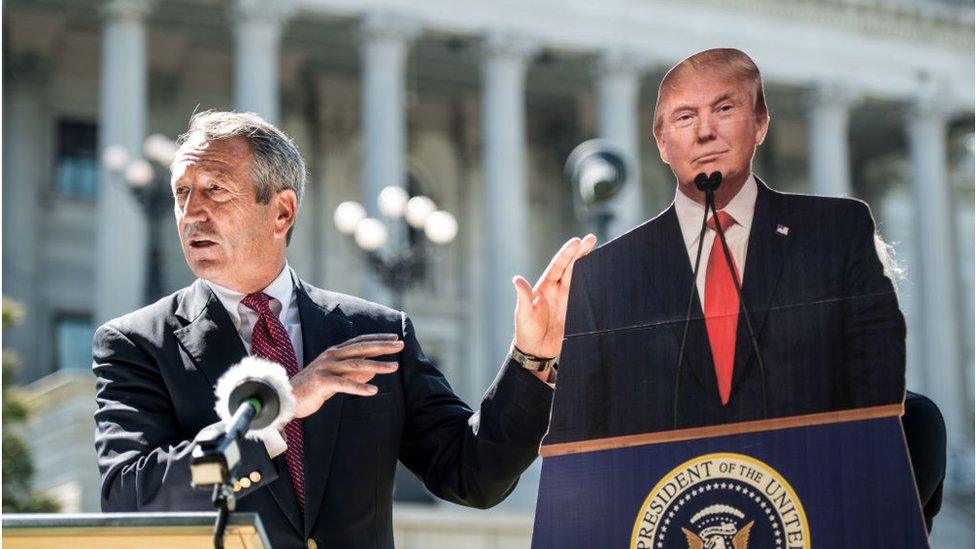
Mr Sanford is one of the few Republicans to speak out against the president
Mr Sanford, a fiscal conservative and long-time critic of Mr Trump, joined the race in September.
In addition to two terms as South Carolina governor, he served in the House of Representatives in 1995 and again in 2013, but lost his seat in the Republican primary contest to a pro-Trump candidate.
Mr Sanford's second term as governor was overshadowed by an extramarital affair: he went missing for several days, and staff told reporters he was hiking the Appalachian Trail. He later admitted, external he had gone to Argentina to see his mistress.
Former Illinois congressman Joe Walsh and former Massachusetts Governor Bill Weld are the remaining two Republican challengers to Mr Trump for the party's presidential nomination.
Mr Trump has described all three as "badly failed candidates".
The Republican National Convention, at which the nominee will be formally chosen, will take place in late August 2020 after a series of state primary elections and party caucuses.
A number of states have cancelled their Republican primaries to focus support for Mr Trump and save money.

Who will take on Trump in 2020?

Election day is still more than a year away but the race to become the Democratic challenger to Mr Trump is already well under way.
The latest polling suggests Ms Warren and Mr Biden are the front-runners, while Mr Sanders is also a popular contender. Many of the the other candidates are relatively unknown outside the Washington DC bubble.
- Published8 November 2019
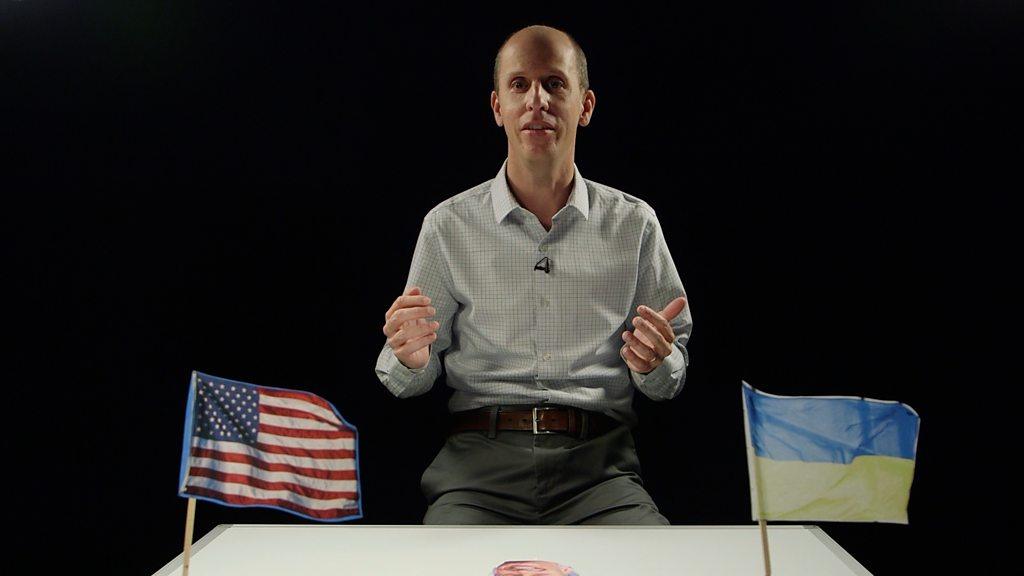
- Published16 April 2019
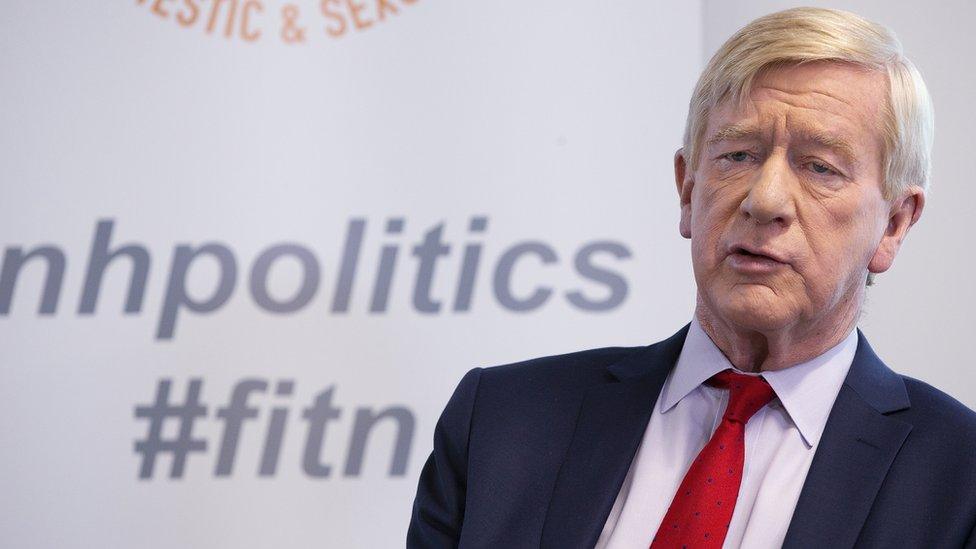
- Published5 March 2020

- Published8 November 2019
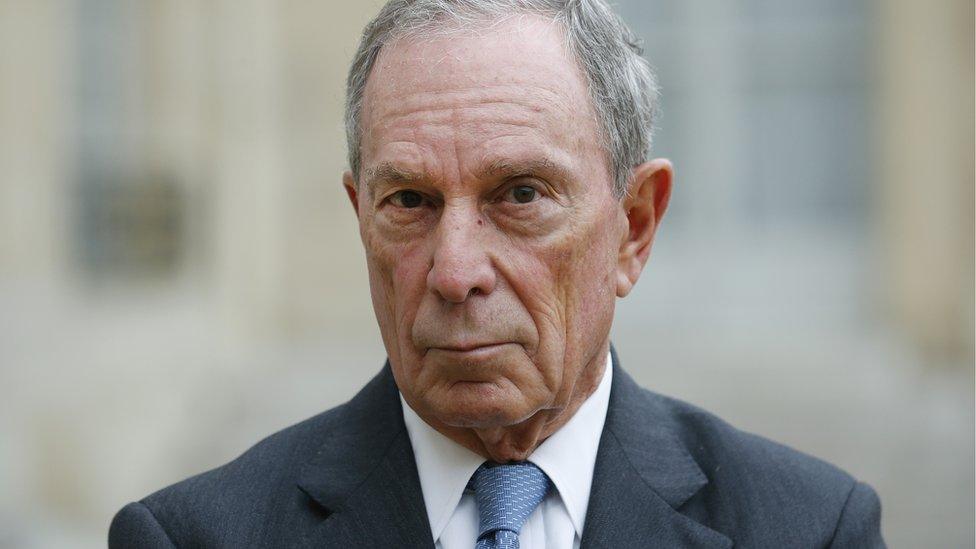
- Published25 September 2019
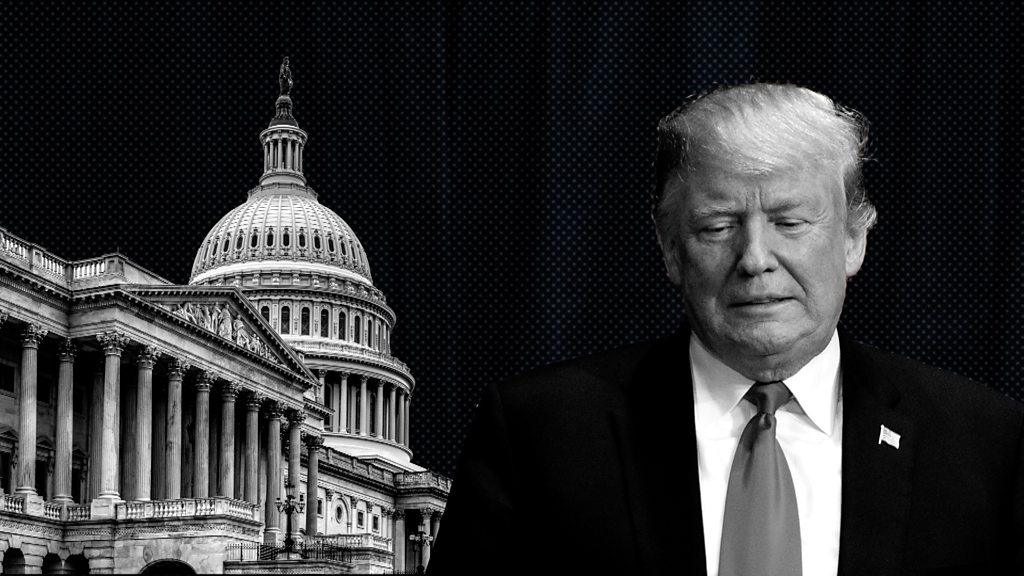
- Published30 September 2019
